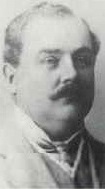
The 1914 The Hartlepools by-election was held on 22 September 1914. The by-election was held due to the death of the incumbent Liberal MP, Sir Stephen Furness. It was won by the 67-year old Liberal candidate Sir Walter Runciman [1] who was unopposed due to a War-time electoral pact.
